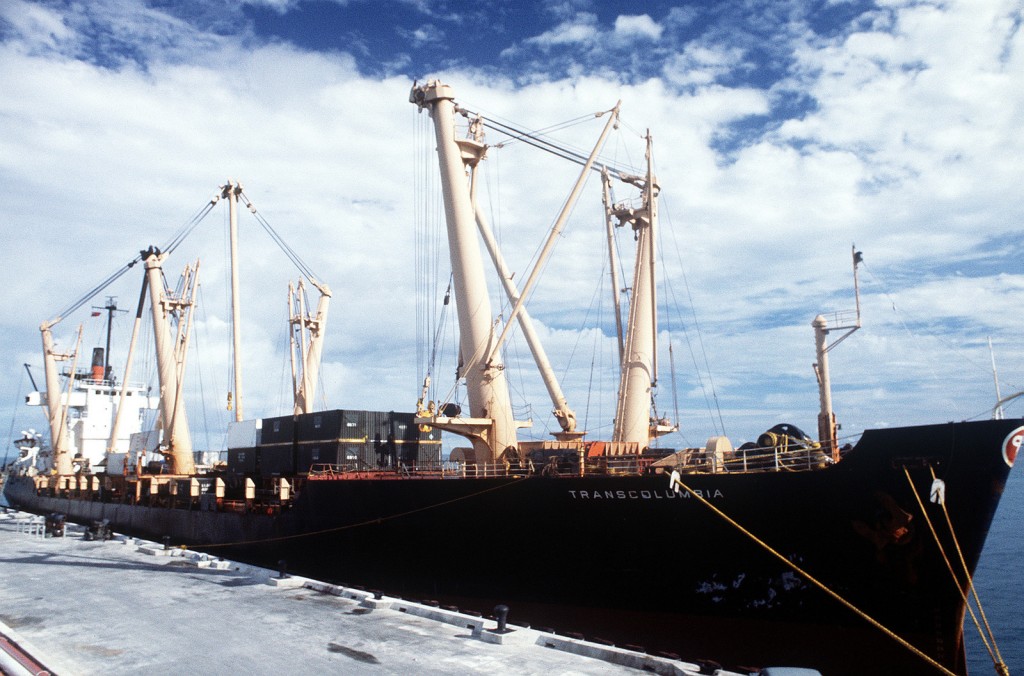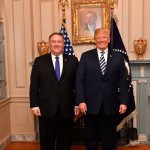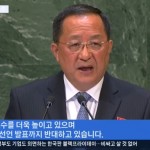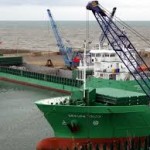NK 뉴스 “한국 정부, 유엔 대북 제재위에 통보 없이 342톤 석유제품 북한에 보내”
- Top Headline
- 정치
한국정부가 지난해 유엔의 대북 제재 결의안을 어기고 석유제품 약 342톤 가량을 북한에 보냈다고 미국의 북한 전문 매체 NK뉴스가 23일 보도했다. 로이터통신도 같은 날 NK뉴스를 인용해 한국정부의 신고누락 사실을 보도했다. 두 매체의 보도가 사실로 확인되면 한국정부는 유엔 안전보상이사회의 대북 제재 결의안 제 2397조를 위반한 셈이 되어 국게적인 파문이 예상된다.
NK뉴스는 이날 ‘한국정부가 유엔의 규칙을 어기고 북한에 대한 석유 제공을 보고하지 않았다’는 제목의 기사를 통해 “한국 통일부에 확인한 결과 지난해 문재인 정부는 북한에 324톤 900kg 규모의 석유제품을 보냈고 통일부도 관세청 데이터를 통해 이 사실을 인정했다”고 보도했다. 통일부 관계자는 NK뉴스에 “석유제품들 중 32.3톤은 한국으로 돌아왔고, 140톤은 이산가족상봉 행사와 철도 경협 사업을 위해 쓰였다”고 전한 것으로 알려졌다. 또 나머지 석유제품의 사용처에 대해 통일부는 “개성의 남북 연락 사무소 보수”를 위해 쓰였다고 답했다고 NK뉴스는 보도했다.
NK뉴스는 “미국이 이미 지난해 8월 북한이 연간 받을 수 있는 석유한도를 넘어섰다고 경고했다”며 “그럼에도 불구하고 문재인 정부가 북한에 석유제품을 제공한 것”이라고 밝혔다.
NK뉴스는 사용내역이 구체적이지 않은 것과 별개로 문재인 정부가 석유제품 제공에 대한 구체적 내용과 수신인에 대한 정보를 유엔 제재위의 규칙에 따라 보고하지 않았다고 밝혔다.
2017년 채택된 유엔 안보리 대북제재 결의안 제2397호에 따라 회원국들은 매 30일마다 북한으로 보내졌거나, 판매된 정제된 석유제품 규모를 제재위에 보고해야 한다. 유엔 대북 제재위는 북한으로 보내지는 연간 석유제품 규모를 최대 50만배럴(7만3087톤)으로 제한하고 있다.
매체는 한국 외교부와 통일부에 “왜 유엔의 신고 룰을 무시했는지, 그리고 유엔이 제재를 지목한 인물이나 단체에 석유제품을 보내지 않았다는 것을 확답할 수 있는지” 물었지만 외교부와 통일부는 답변을 거부했다고 전했다.
NK뉴스는 한국정부가 UN제재위에 제대로 보고를 하지 않은 것은 이번 뿐만이 아니라고 밝혔다. 지난해 8월의 관세청 자료를 로이터가 분석한 결과, 유엔이 구체적으로 제재하고 있는 건설 자재들이, 100만달러 상당의 규모로 북한에 보내졌다고 전했다.
한국 외교부는 이 사안과 관련해 로이터통신에 “그것은 북한에 어떠한 ‘경제적 이득’도 주지 않기 때문에, 유엔 제재의 목적을 훼손하지 않는다고 우리는 본다”고 답했다.
NK 뉴스는 북한에 ‘경제적 이득’을 주지 않는 것이 ‘유엔 안보리 대북제재 결의안 제 2397호’를 포함한 어떠한 국제제재의 면제사유에도 해당하지 않는다고 지적했다.
미 하원 외교위원회 법률 자문을 지내며 북한관련 제재안 작성을 자문한 조슈아 스탠튼 변호사는 “문재인 정부가 장기적으로 더 큰 제재 위반을 하기 위해 작은 틈을 만드는 시도를 하고 있는 것으로 보인다”고 진단했다. (The Moon administration seems to be sliding the thin end of the wedge into Kaesong to establish a precedent for a more substantial, long-term practice of violating the sanctions)
그러면서 “북한에 얼마 만큼이 보내지고 있다는 것 보다, 이러한 선례가 만들어 지고 있다는 것이 문제”라고 경고했다.
다음은 NK뉴스 보도의 영어 원문
South Korea, breaching UN rules, failed to report oil shipments to North Korea
342.9 tons of petroleum products were exported to North Korea last year, data reveals
South Korea exported over three hundred tons of petroleum products to North Korea in 2018, data obtained by NK News shows, though failed to report the transfers to the 1718 Sanctions Committee as required by United Nations Security Council (UNSC) Resolution 2397.
The export of the petroleum – subject to strict UN regulations and reporting requirements – was provided despite the U.S. warning in September 2018 that Pyongyang had exceeded “four times the annual quota” of allowed petroleum imports in the first eight months of 2018 alone.
“According to the Korea Customs Service data, a total of 342.9 tons of petroleum products (HS 2710) were exported to North Korea in the year 2018,” a Ministry of Unification (MOU) spokesperson told NK News on Monday, noting that 32.3 tons were subsequently “brought back to the South.”
Of the exported petroleum volume, “140 tons were used for the family reunion event and the oil used for the joint on-site survey of railways,” the spokesperson said, leaving an unspecified amount for “repairing and renovation work of the inter-Korean joint liaison office in Kaesong”.
While the amounts fell well short of North Korea’s allowed import cap of 500,000 barrels of refined petroleum products each year – representing just 0.51% of that total allowance – South Korea failed to report details about the transfers or recipients in the manner required by UN rules.
“Where the Moon administration gets into trouble… is with the requirement that it notify the 1718 Committee every 30 days of how much oil it has sent “along with information about all the parties to the transaction,” which can’t be (to) designated persons or entities,” said Joshua Stanton, a lawyer and blogger who has helped Congress draft North Korea sanctions legislation.
A chart maintained by the 1718 Committee listed no South Korean refined petroleum exports to North Korea during 2018, Stanton pointed out, while informed sources with knowledge of UN sanctions discussions confirmed to NK News that Seoul declined to report the transfers to the UN according to the 30-day reporting requirement in UNSC 2397.
Asked on multiple occasions specifically why South Korea ignored the reporting rules and how it had been able to confirm that recipients of petroleum were not UNSC-designated persons or entities, both the ROK foreign ministry and MOU declined to provide a direct answer.
Instead, the two ministries insisted that the ROK had consulted with the international community and UN sanctions committee on a “transparent” basis, “so that inter-Korean exchanges and cooperation projects can be carried out in accordance with the framework of sanctions against North Korea.”
The U.S. Department of State could not comment on the issue due to an ongoing furlough, while the 1718 Committee previously told NK News that negotiations surrounding exemptions are confidential.
SANCTIONS PATTERN
The ROK government’s view of sanctions transparency falls short of what is expected by UNSC resolutions in two other issue areas in 2018, analysis by NK News suggests, suggesting that Seoul has chosen to implement UNSC sanctions on North Korea on a selective and often inconsistent basis.
Customs data cited by Reuters last August, for example, showed that the ROK sent nearly one million dollars of construction equipment and material specifically sanctioned by the UN to North Korea, in order to renovate the Kaesong liaison office.
“It does not give any economic gain to North Korea, so we are concluding that it does not damage the objective of the sanctions,” a MOFA spokesperson told Reuters of its decision not to seek a UN sanctions exemption to facilitate the transfer of sanctioned construction equipment and material to the project site.
No exemptions exist in UNSC 2397, or any international sanctions, for sector-prohibited goods to be transferred into North Korea in cases when “economic gain” is not created.
Similarly, exemptions did not exist to allow a South Korean cargo plane to transport Kim Jong Un’s gift of two tons of Songni mushrooms to Seoul last September, which fall under the purview of HS Code 07 (vegetables), which North Korea is currently banned from exporting under UNSC 2397.
NK News understands from the informed sources that Seoul chose neither to seek a sanctions exemption nor was provided one by the 1718 Committee to receive the mushrooms from Kim Jong Un, with the implication that the UNSC rules were violated as a result.
Despite the available evidence, a MOFA spokesperson said Seoul’s actions were “in accordance with the framework of sanctions against DPRK.”
“The ROK government believes that the exchanges… have been contributing to achieving the purposes of the relevant UNSCRs.”
Yet the lack of effort to follow UNSC regulations surrounding the provision of petroleum to the North, the transfer of sanctioned construction equipment and materials to the Kaesong liaison office, and receipt of Songni mushrooms stands in contrast to at least four requests by Seoul since November to gain exemptions for far less significant forms of inter-Korean cooperation.
On November 24, for example, the UNSC permitted Seoul to proceed with a joint survey of inter-Korean railroads, while on November 30 the UNSC approved the Ministry of National Defense (MND) to provide supplies to the North in order to modernize an inter-Korean military communication line.
On December 12, Seoul then begun talks with the U.S. surrounding exemptions to allow video reunions of separated families, while on December 25 the UNSC approved Seoul to conduct a limited inter-Korean railroad groundbreaking ceremony the very next day.
One specialist said the inconsistencies in approach meant that “South Korea is treading a tricky path”.
“Partly it is to do with the manifest difficulty of trying to work with North Korea, and no doubt also because of factors internal to South Korean government institutions,” said Christopher Green, a DPRK specialist at the International Crisis Group.
“But it is also because international sanctions are as much about politics as about the law.”
As a result, issues like Seoul’s decision not to seek exemptions for projects like the Kaesong liaison office may have boiled down to a perception that “nobody would move to block a project whose stated purpose was facilitating inter-Korean dialogue and de-escalation, and which would not, ultimately, lead to mass transfers of hard currency to North Korea,” he said.
South Korea is also under increased pressure from North Korean counterparts to disregard sanctions and speed up cooperation.
A state media editorial as recently as Monday slammed Seoul’s “indecisive attitude” towards broadening inter-Korean engagement and condemned its plans to seek the exemptions that would allow the reopening of the Kaesong Industrial Complex (KIC).
“The entire nation cannot repress its disappointment over the South Korean authorities’ indecisive attitude of walking on eggshells around the U.S.,” that commentary, published by the outer-track Uriminzokkiri outlet, read.
Others, however, warn of the broader ramifications of Seoul’s approach.
“Yet again, the Moon administration seems to be sliding the thin end of the wedge into Kaesong to establish a precedent for a more substantial, long-term practice of violating the sanctions,” said Stanton about Seoul’s export of petroleum to North Korea in 2018.
“The amount isn’t the problem; the precedent is.”





